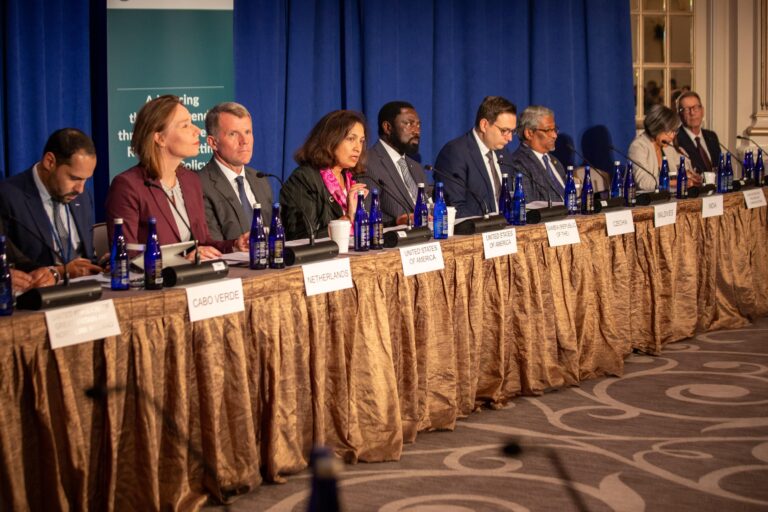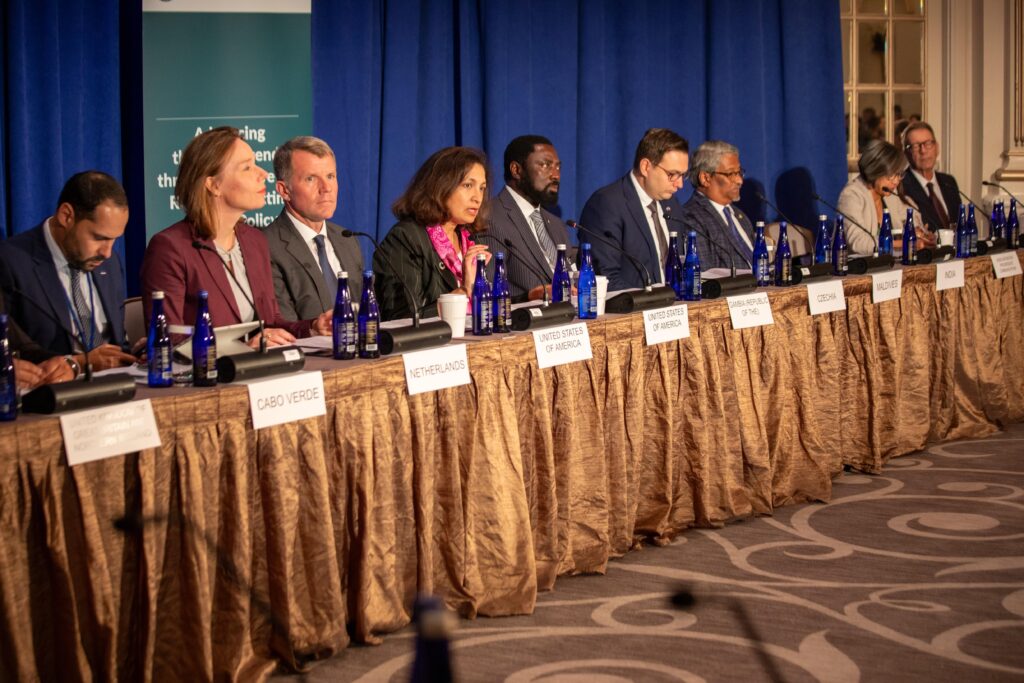A free, open and secure internet is only possible when all countries are connected to it, digitally secure and have rules and laws that protect human rights online, according to Dutch Minister of Foreign Affairs Hanke Bruins Slot, who also announced that The Netherlands would be taking over from the United States as Chair of the Freedom Online Coalition (FOC) in January 2024.
On Wednesday, 20 September on the margins of the 78th session UN General Assembly, the United States, 2023 Chair of the Freedom Online Coalition (FOC), hosted
Ms Slot spoke at an FOC high-level side-event, titled “Advancing the 2030 Agenda through Inclusive and Rights-Respecting Digital Policy ”, which was held on the margins of the 78th Session of the United Nations General Assembly in New York on September 20, 2023. The event was hosted by U.S. Under Secretary of State for Civilian Security, Democracy, and Human Rights Ms Uzra Zeya, and had 11 Ministers, six Deputy and Under-Secretary representatives, and seven Executive Level representatives.
The Ministerial meeting featured keynote remarks from U.S. Secretary of State Antony Blinken; opening remarks from Ms Zeya, and a roundtable discussion with country representatives and members of the FOC’s independent multistakeholder Advisory Network, moderated by U.S. Ambassador at Large for Cyberspace and Digital Policy, Nathaniel Fick.
The roundtable discussion explored methods to advance the UN Sustainable Development Goals through inclusive and rights-respecting digital policies with panelists noting challenges and opportunities related to advancing connectivity, promoting access and inclusion, and using technology as an enabler of rights.
In her remarks, the Dutch Minister of Foreign Affairs, Ms Slot said: “Everyone here is united by a common value. We all believe in freedom and human rights, and we all believe they should apply everywhere. Online, just as much as in the real world.”
Observing that the world is “about to experience a revolution in Artificial Intelligence, and it will affect every aspect of our life”, she stressed that: “The choices we make now, will determine the future of this technology. And with it: our own future. So we must make the right choices: for human rights, for digital rights, and for freedom online.”
Ms Slot said for The Netherlands, two issues are clearly linked within the choices it must make, namely the promotion of digital rights, and bridging the digital divide.
She insisted that “A free, open, and secure internet is only possible when all countries are connected to it; when all countries are digitally secure; and when all countries have rules and legislation that protect human rights online”, adding that “digital inclusion is key to achieving all these things.”
Ms Slot announced that next year, the Netherlands will assume the chairmanship of the FOC, pledging that “In that role, we will continue the important discussions on Internet governance, digital inclusion and human rights and AI.”
She urged everyone to join the Netherlands in this effort.
In his keynote remarks, Secretary Blinken recalled that “When the coalition was founded over a decade ago, the technological landscape was just a little bit different than it is today. Back then, when we were starting the Freedom Online Coalition, we had half as many people as we do today with access to the internet”, adding “that, of course, is still a work in progress because access remains one of the critical things that we have to achieve. But the internet’s extraordinary potential as a catalyst – to convene new communities literally spanning the globe, to enable individuals to document earth-shaking events with smartphones in their pockets, to galvanize entire movements, as we’ve seen – that was just beginning to be understood.”
He also noted that the risks posed by surveillance technologies, online harassment and abuse, and the spread of disinformation were largely absent from the public dialogue, while the next generation of game-changing digital technologies, like generative artificial intelligence, had yet to be invented.
Secretary Blinken warned that “We can develop the best technologies in the world, but if we haven’t determined how to govern them in partnership with those who share our values, these technologies are likely to be misused for repressive or destabilizing purposes, making communities less peaceful, less prosperous, less secure, and unfortunately, more undermining of human rights. They’re also less likely to be leveraged for advancing societal progress around the globe.”
He insisted that the FOC had demonstrated the potential to be a powerful international platform for all of the relevant discussions, adding that the coalition was taking the lead in countering digital authoritarianism and the misuse of digital technologies.







